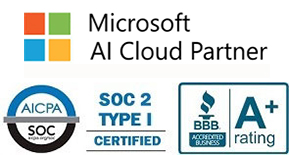Essential Features in Cloud Computing Environments: Key Attributes for Efficiency and Security

As you explore the realm of cloud computing , you'll find a wealth of features that not only enhance the efficiency and agility of your operations but also offer the flexibility to adapt to the evolving demands of the business landscape. Central to the adoption of cloud technology are its essential characteristics, which include on-demand self-service, allowing you to access computing resources and services without the need for direct interaction with service providers. This autonomy empowers you to manage these services based on your requirements, providing a significant shift from traditional IT resource management.
Understanding the deployment and service models is crucial, as they define how cloud computing is structured and delivered to you. Common deployment models such as public, private, and hybrid clouds differ in terms of management, scalability, and security offered, matching diverse business needs. To further tailor its capabilities, cloud computing provides different service models like Infrastructure as a Service (IaaS), Platform as a Service (PaaS), and Software as a Service (SaaS), each offering varying levels of control, flexibility, and management.
Keeping abreast of the latest trends in cloud computing is important for making informed decisions about integrating cloud services into your business strategy. The adoption of cloud computing continues to surge as more and more organizations leverage its advantages for scalable infrastructure, cost efficiency, and the ability to innovate rapidly in a competitive marketplace. As you navigate through these offerings, your understanding of the essential features will guide you in selecting the most suitable cloud computing environment to meet your specific needs.
Core Technologies and Architecture
In the realm of cloud computing, understanding core technologies and architecture grants you the ability to harness the full spectrum of its capabilities, from infrastructure and service delivery to resource management that pivots seamlessly with fluctuating demands.
Infrastructure and Virtualization
At the heart of cloud computing environments lies a robust infrastructure, composed of physical data centers, servers, and networks that ensure the seamless flow of data across the internet. Virtualization technology is key here; it allows you to create multiple simulated environments or dedicated resources from a single, physical hardware system.
Virtual Machines (VMs) play a critical role in this space, enabling the efficient use of computing resources and offering improved scalability . By creating an abstraction layer over the physical hardware, virtualization maximizes the utilization of servers, enhancing your infrastructure's efficiency and reducing operational costs.
- Data Storage: Streamlined via virtualization, allowing efficient data management and accessibility.
- Bandwidth and Processing: Virtualization optimizes these for peak performance and minimized latency.
Service Delivery Models
Cloud computing has revolutionized the delivery of services with the advent of models like Software-as-a-Service (SaaS), Infrastructure-as-a-Service (IaaS), and Platform-as-a-Service (PaaS). Each model presents a different level of control, management, and scalability:
- SaaS: You access software applications over the internet, eliminating the need for local installation, maintenance, and often resulting in cost savings.
- IaaS: Providing you with the highest level of flexibility, IaaS offers computing resources such as virtual machines, networks, and data storage as a service.
- PaaS: This middle ground gives you a framework to build, test, deploy, and manage your applications, without the complexity of maintaining the underlying infrastructure.
Service providers host these services in public clouds, private clouds , hybrid clouds, or multi-cloud environments, depending on your specific needs and concerns regarding control, privacy, and regulatory compliance.
Scalability and Resource Management
Cloud computing's hallmark characteristics, like scalability and resource management, afford you the capacity to adapt to changing demand swiftly through resource pooling and elasticity.
- Scalability: Stay confident knowing that as your business grows, your cloud environment can scale to match your increased data and processing requirements.
- Rapid Elasticity: This feature enables on-demand self-service, allowing you to automatically provision and deprovision resources based on current demand—efficiently ensuring you don't pay for idle resources.
Cloud services engage in resource pooling, where the provider’s computing resources are pooled to serve multiple consumers, with resources dynamically assigned and reassigned according to demand. This maximizes efficiency and ensures a responsive experience for you. Through these elements, cloud computing exhibits an extraordinary capacity for innovation and transformation, defining the way modern businesses operate in an ever-evolving digital landscape.
Operational Excellence and Security
To thrive in cloud computing environments, operational excellence and robust security practices are non-negotiable. As you design and manage your cloud architecture, understanding and implementing essential features in these areas are pivotal to safeguarding and optimizing your organization's cloud presence.
Security and Compliance
Your cloud environment's security is underpinned by encryption, firewalls, and identity access management. These technologies work in tandem to protect data and applications from unauthorized access and breaches. Providers like AWS, Google Cloud, and Microsoft Azure prioritize your privacy by implementing comprehensive compliance protocols, ensuring that your operations meet industry standards and regulatory requirements.
- Encryption: Safeguard data both in transit and at rest.
- Identity and Access Management (IAM): Strictly control user access to your resources.
Performance and Maintenance
Performance and maintenance are bedrocks of operational excellence. Cloud providers offer tools for ongoing monitoring and updates to ensure peak performance and availability. Services are architected for high reliability with redundant systems and data centers.
- Availability: Ensure continuous operation with minimal downtime.
- Reliability: Consistent and predictable cloud performance.
Cost Optimization and Business Continuity
Cloud computing champions a cost-effective, pay-as-you-go model, which translates into substantial cost savings over traditional computing. Leverage utility and grid computing to scale resources as per demand. Disaster recovery and business continuity features are crucial, allowing you to quickly rebound from disruptive events without financial strain.
- Cost-effective: Only pay for what you use, optimizing resource allocation.
- Disaster Recovery: Implement robust recovery solutions to maintain business operations.
Efficient utilization of AI and machine learning in cloud environments further enhances analytics and automated decision-making, while storage solutions offer scalability and durability. Your choice of cloud provider should align with the unique demands of your business, whether it's AWS's extensive suite, Google Cloud's AI prowess, or Microsoft Azure's enterprise capabilities.
Contact Us
If you have any questions about cloud computing, infrastructure management, or any other IT services, feel free to reach out to us. Integrated Computer Services is here to assist you in optimizing your cloud environment for efficiency and security.
About Us:
- 150+ 5-Star Google Rated IT Firm
- Microsoft Certified Cloud AI Partner
- SOC II Certified Managed Service Provider
- Better Business Bureau A+ Rated






